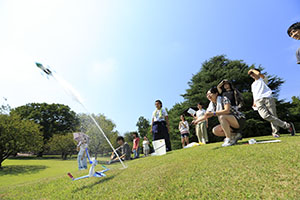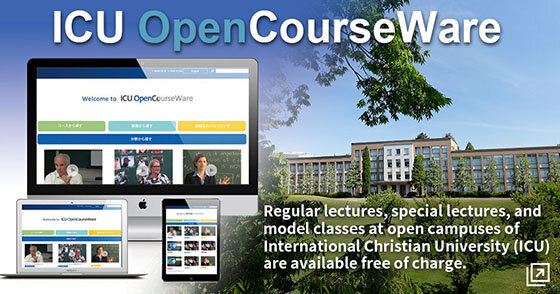Physics
Introduction to the Major
Faculty members talk about what you can learn and what makes this major special.
Mission Statement
The world is made up of objects, from microscopic objects such as quarks to objects on the scale of galaxies. They are governed by universal physical laws and manifest themselves to us as various structures and natural phenomena. By using these physical laws, mankind has also acquired the ability to 'manipulate' nature in various ways. This understanding of physics has also raised a number of questions about the existence of mankind as a 'object' with feelings and consciousness, as well as a number of philosophical issues. Based on these considerations, the Physics Major upholds the following three missions.
- To deepen scientific thinking for an orderly and comprehensive understanding of this structure of nature and to explore a novel physics through its applications.
- To create liberal arts knowledge that transcends the boundaries of existing disciplines by rethinking the humanities, social sciences, music and the arts from the perspective of physics.
- To develop world citizens who link this knowledge of physics to practice and, through responsible speech and action, promote better social changes

Learning Goals
Learning in the Physics Major does not only come from the classroom, but also from chats with faculty members, science seminars, and various hints that appears in things you see on a walk. Physics in the liberal arts is a broad field, nurtured comprehensively through a rich campus experience that includes general education courses (GE) and club activities, but here we will discuss the role of the curriculum.
There are two broad approaches to physics. One is the experimental method, which exposes the behavior of physical phenomena through measurement, and the other is the theoretical method, which uses mathematics to construct models of physical phenomena. One key is to take a balanced course of study in these two areas.
Students majoring in physics first gain a broad understanding of fundamental concepts in physics, such as mechanics, electromagnetism, and thermodynamics. At the same time, they develop an overview of the entire field of physics, recognizing the diversity of its various subfields.
At the same time, they also learn basic experimental techniques that can be applied to various experiments. It is also essential to learn basic concepts and techniques such as mathematics and information processing (programming), which can be used as tools in physics later.
In the second half of the course, students explore these physics in depth by taking highly specialized physics courses that can be applied to research in modern physics and experimental courses specializing in particular fields. These higher-level physics courses can also serve as the basis for graduation research, so together with these courses, students prepare for their graduation research and other studies.
Science communication is also an essential part of the learning process, in which the students verbalize and share the essence of the physics they learn in these classes with other people. Students learn these skills through reports and presentations.
Department of Natural Sciences Website
Major Faculty
Explore our Classes Online
Visit the ICU OpenCourseWare site to explore and experience our courses online.

